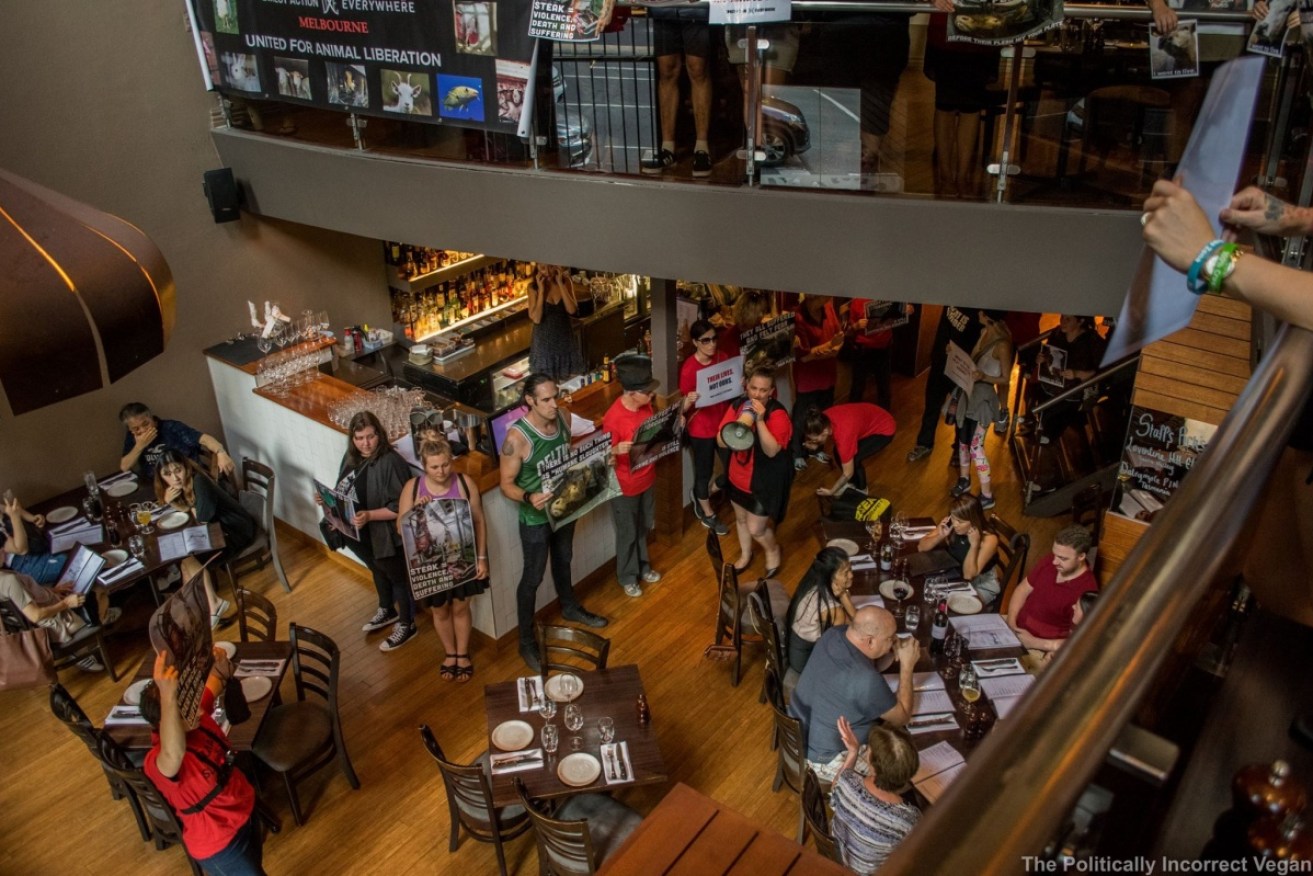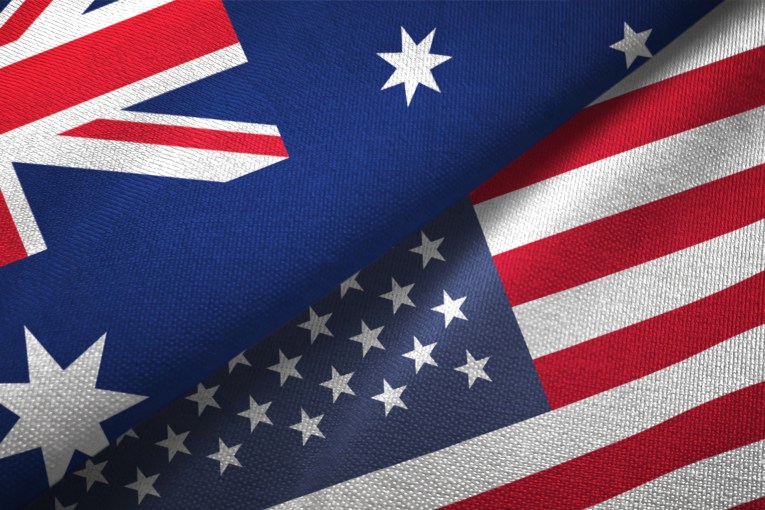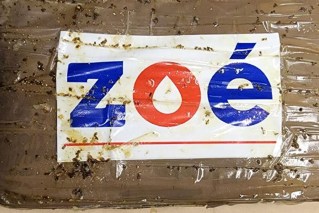Vegans go global to stake their claim to the high moral ground


Vegan activists in the Rare Steakhouse in Melbourne's King street. Photo: Facebook, Melbourne Cow Save
Vegan is not a dirty word – unless you’re being harassed while eating a steak.
The storming of a Melbourne restaurant by animal rights activists at the weekend is the latest incident in an increasingly vocal global movement to oppose the consumption of meat.
And it’s prompting debate about whether a new wave of younger activists are being too aggressive in targeting consumers and displaying public images of distressed animals.
Last November, the group Anonymous for the Voiceless organised what it claimed to be the ‘biggest global vegan outreach campaign’ with its International Cube Day involving protests in 200 cities including Sydney and Melbourne.

PETA Zombies in Sydney’s streets protesting against the consumption of meat. Photo: AAP
Protesters holding graphic images of factory farming believe showing the violence and gore is inevitable when fighting the meat industry.
But one UK survey of more than 2600 meat eaters said they had been put off the cause because of aggressive attitudes of vegetarians or vegans.
Two groups involved in the Rare Steakhouse protest, Melbourne Cow Save and Direct Action Everywhere (DxE), say their protest was an attempt to force the public to rethink their meat consumption.
“Disruptions are never about targeting individuals, but rather the system, and confronting a normalised practice of that system is one way to do that,” says Melbourne Cow Save on its Facebook page, who The New Daily asked for comment.
“This is done in places where violence is being committed and consumed, with speak outs, protesting and chanting.”
The Australian branch of the high-profile animal rights group People for the Ethical Treatment of Animals (PETA) told The New Daily it was not associated with either of the groups involved in the Melbourne action, but press officer Laura Weyman-Jones said the protests were understandable.
“This isn’t PETA’s style, but considering that billions of gentle sheep, chickens, cows, and pigs are strung up – one in front of the next – beaten, and sometimes skinned alive and that their throats are slit for a fleeting taste of flesh, who can blame anyone who peacefully (if enthusiastically) causes people to consider the cruelty of it all?” Ms Weyman-Jones said.
In Europe, PETA has been involved in some confronting public demonstrations, including at Paris Fashion week and the mock slaughter of humans in London.

The UK branch of PETA held this protest in London in 2016. Photo: AAP
Asked if protests against individual restaurants could be counter-productive to the cause in Australia, Ms Weyman-Jones said “some people will change their views and behaviour when they think about such abuse”.
“Shaking things up a bit is how change comes about.”
Figures on the number of vegans in Australia are hard to pin down, but Roy Morgan Research said between 2012 and 2016 the number of vegetarian adults in Australia rose from 1.7 million (or 9.7 per cent of the population) to almost 2.1 million (11.2 per cent).
And while many non-vegetarians expect humane treatment of animals used for food, PETA Australia maintains “ethical meat is a myth”.
“When it comes to raising and killing animals on an industrial scale, any measure of kindness, respect or decency goes out the window,” said Ms Weyman-Jones.
“Luckily, it’s incredibly easy now to find delicious vegan meat that is not only better for animals, but better for our bodies and the environment too.”
While climate change concerns have given impetus to the vegan cause, the movement can, at times, appear to be fractured.

The flag designed to symbolise the vegan cause. Photo: veganflag.org
The often heated debates between activists and groups was recently highlighted by the saga of the ‘vegan flag’. Conceived by an Israeli activist Gad Hakimi while writing a “vegan superhero comic”, it was meant to provide a visual symbol to unite the cause worldwide
But the flag’s colours of green, white and blue – representing land, life and the sea – divided the community, with some arguing that blood red would have better represented the suffering of animals.
Blood has been crucial to many vegan protests, be it splattered on furs, spilling from zombiefied humans or depicted in real life slaughterhouse images.
As the shock tactics become more entrenched, it’s only a matter of time before meat-eaters start biting back.








